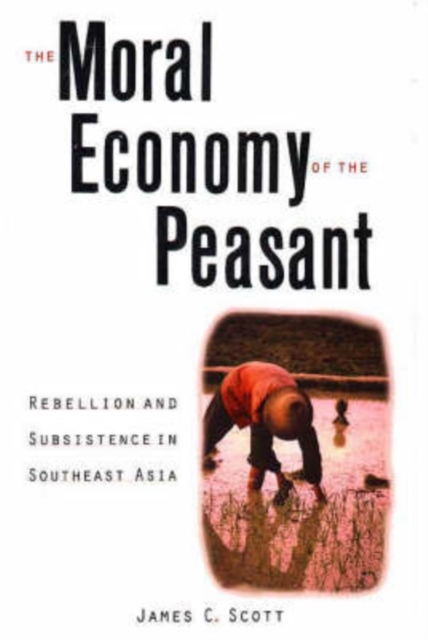
The Moral Economy of the Peasant : Rebellion and Subsistence in Southeast Asia Paperback / softback
by James C. Scott
Paperback / softback
Description
“This work is a profound and fundamental contribution to the issues addressed.”—Sociology “Vital to an understanding of peasant politics.”—Library Journal James C.
Scott places the critical problem of the peasant household—subsistence—at the center of this study. The fear of food shortages, he argues persuasively, explains many otherwise puzzling technical, social, and moral arrangements in peasant society, such as resistance to innovation, the desire to own land even at some cost in terms of income, relationships with other people, and relationships with institutions, including the state. Once the centrality of the subsistence problem is recognized, its effects on notions of economic and political justice can also be seen.
Scott draws from the history of agrarian society in lower Burma and Vietnam to show how the transformations of the colonial era systematically violated the peasants’ “moral economy” and created a situation of potential rebellion and revolution. Demonstrating keen insights into the behavior of people in other cultures and a rare ability to generalize soundly from case studies, Scott offers a different perspective on peasant behavior that will be of interest particularly to political scientists, anthropologists, sociologists, and Southeast Asianists.
Information
-
Only a few left - usually despatched within 24 hours
- Format:Paperback / softback
- Pages:254 pages
- Publisher:Yale University Press
- Publication Date:10/09/1977
- Category:
- ISBN:9780300021905
Information
-
Only a few left - usually despatched within 24 hours
- Format:Paperback / softback
- Pages:254 pages
- Publisher:Yale University Press
- Publication Date:10/09/1977
- Category:
- ISBN:9780300021905






